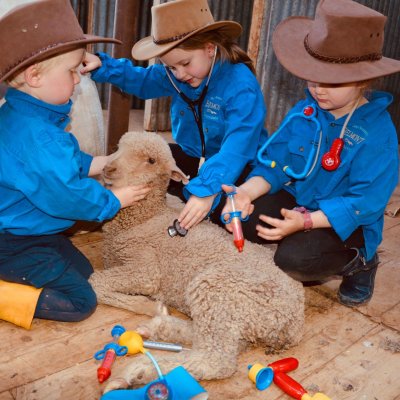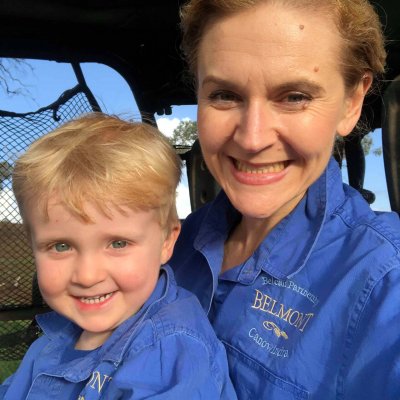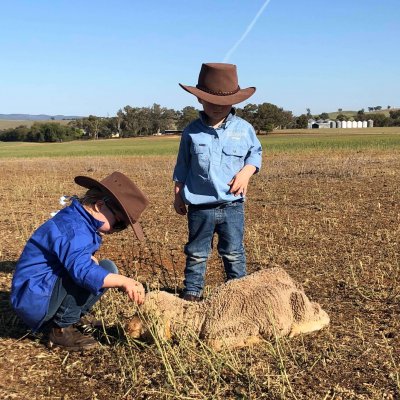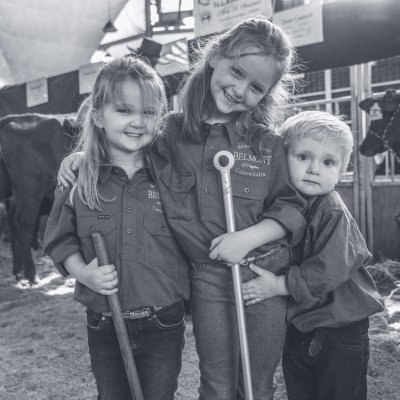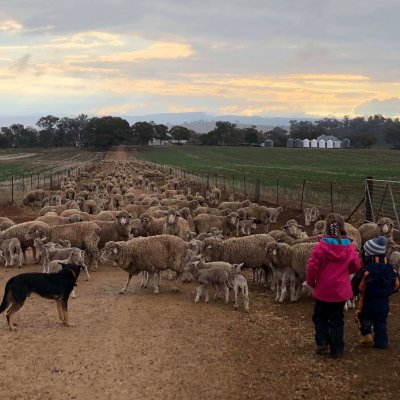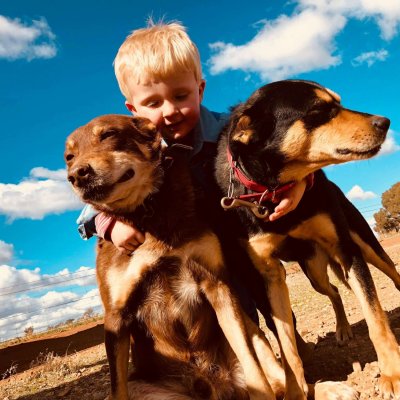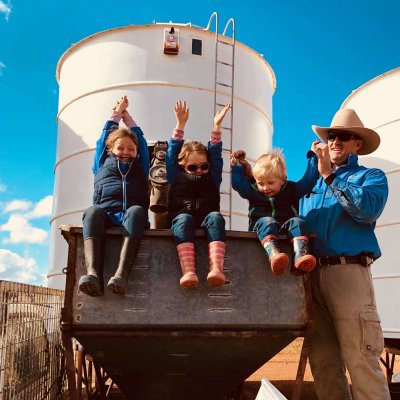Determined, hard-working and resilient, Doctor Ellen Downes has been referred to as a ‘quintessential multi-tasker’. A rehabilitation specialist, a farmer and a mother of three, Ellen is originally from a fourth-generation dairy farm near Jamberoo, on the South Coast of New South Wales. Now based on a property near Canowindra, Ellen is a key contributor to not-for-profit AgEDGE, is passionate about the sustainability of family businesses, and is happiest when fully immersed in the rural way of life and imparting invaluable rural knowledge to her children.
When asked what concerned Ellen about the health and safety of those in rural industries and communities, Ellen recalls the moment she was notified that her father had been involved in a tractor roll-over. Whilst her father was incredibly fortunate to have survived the incident, Ellen heeds the importance of installing physical safe guards, in having active conversations about work health and safety and in stopping and thinking before you start a job. Ellen sees merit in the safe use of side-by-side buggies (as opposed to quad bikes), in encouraging rural women to speak up and in constantly reminding one’s self that “people are more important than deadlines”.
How would you describe yourself in three words?
Determined, hardworking and resilient.
What's one achievement you are most proud of?
Supporting my husband to undertake a Nuffield international farming scholarship in 2018.
This required me to ‘step up’ and manage our mixed farming enterprise whilst still working as a doctor (medical specialist), being a mother to our three young children, and battling an unexpected drought!
What makes you truly happy?
Feeling that my husband and I are achieving the goals that we’ve set for ourselves, our family and our community.
Participating in everything rural life has to offer and showing our children what we believe is important about this way of life.
What do you love the most about being a rural woman?
The diversity of experience and opportunity.
Due to the nature of our lives we need to step into new and challenging situations all the time. This provides endless opportunities for growth and development, and truly allows women to showcase the ability they have to support, adapt, drive and empower those around them.
Tell me about a time when you felt worried about your own or someone else’s health, safety or wellbeing on the farm, boat or in some other aspect of rural life.
My father was a dairy farmer and had several serious farm accidents. When I was 13 years old he rolled a tractor on himself and spent months in hospital. I recall arriving home with my Mum and brother to find my Uncle telling us that Dad had had an accident but was alive. He had not showed up for milking time and had spent hours lying in a paddock with a broken pelvis, with the tractor burning and waiting for help. I recall running across the paddocks worrying if he was alright whilst we helped the ambulance and helicopter retrieve him. He spent three months in traction in hospital. He eventually recovered, but later went on to have a nasty fall off a cliff on the farm and fractured his skull whilst he was working alone. I always worried when he was late to return home that something had happened. Whenever he was driving on our very steep hills on the south coast dairy farm where I grew up, I would worry that he would roll the tractor again.
Despite my husband’s care and attention to safety – he partially amputated his finger upon getting it caught in an auger. It happened so quickly.

What practical things did or could you, your partner and / or others do to prevent someone from getting hurt?
We’ve placed guards and roll bars on whatever we could on the farm my husband and I live on.
We have developed a safety manual and instruction list for new people (including employees) who are new to each piece of machinery or the property. We orientate our staff. We lecture them about safety first.
We invested in safer means of transport (like a side-by-side buggy) as we have small children on our farm. We label equipment on the farm.
We have farm business meetings and try to raise safety issues.
"We've placed guards and roll bars on whatever we could on the farm... we reflect on recent practices and plan for improvement."
Ellen Downes, Canowindra, New South Wales AU Tweet this
Is there a time, place or scenario when your partner / workers are more willing to make changes to the way work is done?
When we remind each other of other people’s misfortune with farm accidents.
Although it shouldn’t take someone else’s accident to draw your attention to concerns, I find it works as a huge jolt of reality. When we recall the incidents or ‘near misses’ we have had on our place or with our parents we reflect on our recent practices and plan for improvement.
When I talk about what has happened to some of my patients who end up in hospital we certainly pause to think about how we need to plan to avoid that happening to us.
If you could give any advice to another rural woman about work health and safety in rural industries, about influencing change in business - or just in general - what would it be?
Speak up! Remind your family and employees that safety is valued and of ultimate importance in your workplace.
Create a culture in your business where you ask employees for feedback on concerns and encourage them to stop and contact you rather than take an unnecessary risk. Regularly discuss the potential risks on your property and be open to trying to address them.
Value life and the people over productivity and efficiency.
Don’t assume everyone has remembered.
Don’t be afraid to clarify what job they are doing, where they’re doing it and when they are expected home. Then you have a greater chance of being able to check on them or assist if needed. If no one knows what you are doing (or where) then it could make the ultimate difference.
Is there anything else you'd like to add?
Stop and think:
“What is the consequence to me? To others? To the business?” (Even to liability if that helps you stop to think!)
BEFORE you do something you know you might be taking a risk on, and when you are distracted take a deep breath and a few minutes ‘time out’ before you tackle something challenging – it could make all the difference!
People are more important than deadlines.

